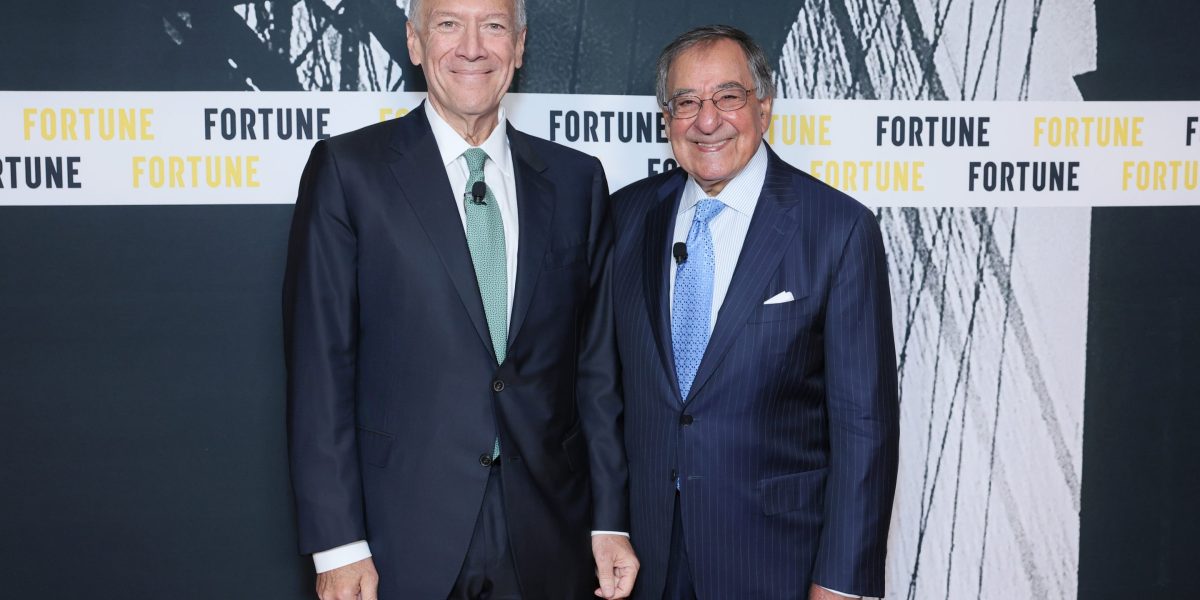
President-elect Trump’s economic agenda—cut taxes and embark on a widespread campaign of deregulation—could risk running up the already skyhigh national debt, according to former CIA Director and Secretary of Defense Leon Panetta.
“That will inspire a pretty strong economy,” Panetta said during an onstage interview at Fortune’s Global Forum. “The big dark side of this is that it is likely borrowing in the U.S. is going to soar. We’re looking at, I think, the possibility of maybe adding $7 trillion to the national debt.”
Panetta appeared to be referencing projections from an October analysis by the nonpartisan budget watchdog the Committee for a Responsible Federal Budget that forecasted a $7.75 trillion increase in the national debt if Trump were to successfully implement his policies. Trump campaigned on sweeping tax cuts and a proposal to levy blanket tariffs on all goods coming into the U.S.
However, the exact impact of some of Trump’s unorthodox economic policies on an otherwise strong economy remains uncertain, according to Panetta. “The economy is good, but obviously [Trump] represents a real jolt to the economy in America,” he said.
In addition to being an expert on national security Panetta is also a specialist in governmental budgeting. During Bill Clinton’s administration, Panetta served as Director of the Office of Management and Budget and White House chief of staff. Previously, Panetta was a Congressman from California and chaired the House Budget Committee.
Despite being supportive of the broad strokes of Trump’s economic agenda, namely deregulation and cutting taxes, Panetta was not without reservations. Of particular concern were the interest payments the U.S. would be forced to make on its rising national debt. Interest payments on the national debt, expected to reach $870 billion this year, now exceed the $822 billion annual defense budget, according to a March analysis from the Congressional Budget Office.
Interest payments are “going to continue to increase, [which will] create pressure on interest rates,” Panetta said. “That to a large extent is going to impact on the global side, because with the value of the dollar being high—I think it’s going to continue to grow—it’s going to create more pressure in terms of the global economy.”
Because the U.S. dollar is the currency of choice for much of international trade, changes to its strength can have ripple effects across the world. When the dollar becomes stronger, it makes repaying debts on money borrowed in dollars more expensive and pushes up costs of global goods relative to other currencies. This may be good for the U.S. but can create tight economic conditions for other countries, particularly those in emerging markets.
As of July, Trump’s view was that the U.S. dollar was too strong. He told Bloomberg the U.S. had a “big currency problem.”
The conundrum Trump faces, as he prepares to enter the White House, is that many of his policies are expected to strengthen the dollar, as Panetta pointed out.
A newsletter for the boldest, brightest leaders:
CEO Daily is your weekday morning dossier on the news, trends, and chatter business leaders need to know.
Sign up here.
